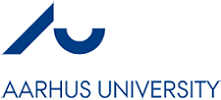Quantitative Economics

Teaching at PhD-level
The two-year International Master of Science in Quantitative Economics (IMSQE) programme is an elite full-time MSc programme at the Department of Economics and Business Economics, Aarhus BSS. Students tailor their own study programme based on a range of advanced-level courses with a quantitative orientation and selected PhD level courses. The programme requires strong analytical skills in quantitative methods and there are special requirements regarding the level and qualitative content of written assignments.
Learning Objectives
The IMSQE programme provides the students with a number of outstanding qualifications. They will acquire analytical skills at a very high level, and they will thus be able to apply the methods that they have learned to new cases, to formulate new theories, to formulate and test hypotheses, and to reflect upon the validity and relevance of various scientific methods and substantive theories within the field. This implies that the students will be able to go well beyond reproduction of known material, and working independently on new topics within the area will be a core competence of the elite students.
Aims
The purpose of the IMSQE programme is to provide candidates with advanced-level training within the analytical, quantitative disciplines of macroeconomics, microeconomics, economics, econometrics, finance and accounting. The IMSQE programme aims at recruiting candidates within quantitative economics and management internationally, in competition with leading institutions such as London School of Economics, Oxford University and Cambridge University.
Graduates of the IMSQE programme have acquired analytical skills at a very high level, which are in increasing demand. Potential future employers are Danish as well as international organizations, consulting firms, ministries and government agencies, and financial institutions such as commercial banks, mortgage institutions, pension funds, insurance companies and investment banks. Furthermore, the IMSQE programme provides an excellent opportunity for graduates to continue their studies at PhD level. There are options for both a three-year programme for students having completed their master degree and a four-year programme, in which students enroll after having completed the first year of the master programme.
Į magistro studijų programas gali stoti visi, baigę universitetą arba besimokantys paskutiniame kurse. Studijos kurias baigei ar tebesimokai turi būti panašios krypties kaip ir tos, į kurias nori stoti, kadangi priėmimas yra paremtas ECTS kreditų suderinamumu.
ECTS kreditų išrašas - jei dar nesi baigęs aukštosios mokyklos, būtina prisegti ECTS kreditų išrašą, kuriame būtų matyti, kokius dalykus Tu mokeisi bei kokius pažymius ir kiek kreditų už juos gavai. Kai siunti anketą paskutiniame kurse, diplomą reikia prisegti vėliau, kai tik jį gausi.
Bakalauro diplomas – jei jau esi baigęs aukštąją mokyklą, išrašo nereikia, užtenka prie anketos prisegti savo Bakalauro diplomą.
Anglų kalbos žinias gali patvirtinti vienu iš šių būdų:
- IELTS – 6.5
- TOEFL – 83 . Aarhus universiteto TOEFL kodas yra 8935.
Applicants must have the following areas covered in their Bachelor’s degree programme in order to be considered for admission to the programme:
- Microeconomy (20 ECTS)
- Macroeconomy (20 ECTS)
- Statistics and Econometrics (20 ECTS)
- Finance and Investment (20 ECTS)
- Mathematics (15 ECTS)
Along with the application the applicant must upload:
- Course descriptions in English briefly describing the contents of the applicant's specific BA courses or other information that will contribute to describing the contents of the applicant's Bachelor's degree programme (may be translated by the applicant, but certified by the applicant's university).
- Official descriptions of relevant courses to be completed after the application deadline.
- An official description of the marking scale used at the applicant's home university.
Graduates of the elite programme acquire analytical skills at a very high level. Potential future employers for elite graduates include Danish as well as international organisations, consulting firms, ministries, government agencies and financial institutions, including commercial banks, mortgage institutions, pension funds, insurance companies and investment banks.
Positions, that can be take after graduating from this programme:
- Administrative - reporting;
- Analysis - handling of data (databehandling), data validation presentation of analysis (fremstilling af analyser), competitor analysis (konkurrentanalyser), market analysis, scenario analysis, cost analysis (udgiftanalyse) and economic analysis;
- IT - programming;
- Economy and Accounting - modelling and audit.

